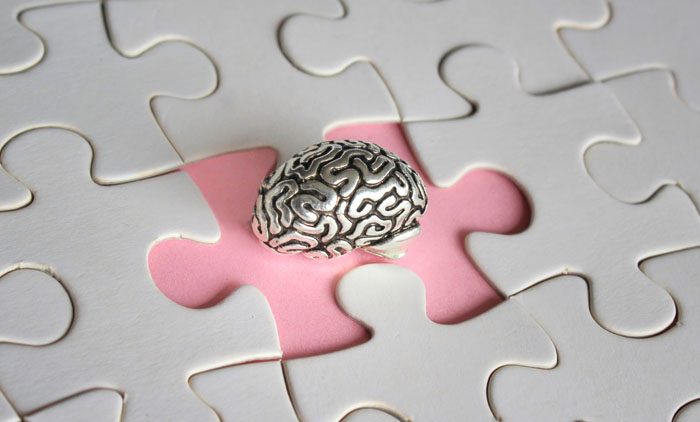Symptoms of Alzheimer’s Disease?
Alzheimer’s is a kind of dementia that impacts memory, thinking and behaviors. Symptoms, in time, develop to be severe enough to interpose with day-to-day tasks.
Understanding Alzheimer’s and dementia.
Alzheimer’s is the most general source of dementia, a typical term for memory loss and other mental abilities severe enough to disrupt day-to-day life. Alzheimer’s disease is responsible for sixty to eighty percent of dementia cases.
Alzheimer’s isn’t a normal part of getting older. The biggest known risk factor is aging, and most individuals with Alzheimer’s are sixty-five or older. This disease is a “younger-onset” of Alzheimer’s when it impacts an individual under sixty-five. Younger-onset can also be known as early-onset Alzheimer’s. Individuals with younger-onset Alzheimer’s could be in the early, middle, or later stage of the disease.
Alzheimer’s worsens progressively. This is a type of progressive disease, in which dementia symptoms steadily worsen over several years. In earlier stages, memory loss is moderate, but with later-stage Alzheimer’s, people lose the capability to engage in a conversation and respond to their settings. On average, an individual with this disease lives five to nine years after diagnosis but could live as long as twenty years, dependent to other factors.
There is no cure, but there are two treatments — lecanemab (Leqembi™) and aducanumab (Aduhelm™) show that the removal of beta-amyloid, one of the characteristics of Alzheimer’s disease, from the brain decreases cognitive and functional reduction in individuals living with early on-set of Alzheimer’s. Other treatments can briefly slow the increasing of dementia symptoms and better the quality of life for those suffering from the disease and their caretakers. Presently, there is an international effort underway to discover better ways to treat the disease, impede its onset and prevent it from progressing.
Alzheimer’s disease is a progressive neurodegenerative disorder that primarily affects memory, cognitive function, and behavior. The symptoms of Alzheimer’s disease can vary widely from person to person and may worsen over time. Some common symptoms of Alzheimer’s disease include:
- Memory Loss: One of the earliest and most prominent symptoms of Alzheimer’s disease is memory loss, particularly difficulty remembering recently learned information. This may include forgetting important dates or events, asking for the same information repeatedly, or relying on memory aids like notes or reminders.
- Difficulty with Problem-Solving and Planning: Alzheimer’s disease can impair a person’s ability to solve problems, make decisions, and plan activities. Tasks that require complex thinking, organization, or attention to detail may become increasingly challenging.
- Confusion and Disorientation: People with Alzheimer’s disease may become confused about time, place, or the sequence of events. They may lose track of the day, month, or year, or they may have difficulty recognizing familiar places or faces.
- Difficulty with Language and Communication: Alzheimer’s disease can affect a person’s ability to communicate effectively. This may manifest as difficulty finding the right words, trouble following or participating in conversations, or repeating themselves frequently.
- Changes in Mood and Behavior: Alzheimer’s disease can cause changes in mood and behavior, such as irritability, agitation, anxiety, or depression. Some individuals may experience mood swings or become withdrawn and socially isolated.
- Loss of Initiative and Interest: People with Alzheimer’s disease may lose interest in activities they previously enjoyed and may have difficulty initiating or completing tasks. They may spend more time sleeping or become less engaged in hobbies, social activities, or personal care.
- Difficulty with Motor Skills: In later stages of Alzheimer’s disease, individuals may experience difficulty with basic motor skills, such as walking, balance, and coordination. This can increase the risk of falls and accidents.
- Personality Changes: Alzheimer’s disease can lead to changes in personality and temperament. Some individuals may become more passive, docile, or withdrawn, while others may become more agitated, aggressive, or suspicious.
It’s important to note that the symptoms of Alzheimer’s disease can overlap with those of other medical conditions, and not everyone with memory loss or cognitive difficulties will develop Alzheimer’s disease. However, if you or a loved one are experiencing any of these symptoms, especially if they are interfering with daily functioning or quality of life, it’s important to seek medical evaluation and guidance from a healthcare professional. Early diagnosis and intervention can help to manage symptoms, improve quality of life, and access appropriate support and resources.
Find Retirement Communities In Sedona
Sedona Winds Retirement Community offers independent living in Sedona, Arizona, can help! Call us today at (928) 496-6547 and learn more about our facility and what we have to offer today’s seniors.





